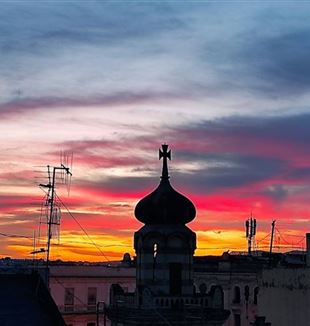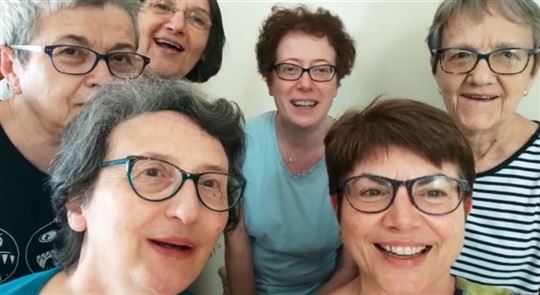
Tunisia: “Why and for whom we are here”
“It is more evident than ever that it is not a matter of ‘saying’ but of ‘being’.” Service in the Diocese, encounters and relationships with the people. A letter from Tunis.Tunisia, a melting pot of cultures and a bridge between civilizations, is severely challenged not only be economic poverty, but also by a poverty of hope and meaning. The Church, whose multicolored and multi-ethnic presence has never diminished over the centuries, is called here to bear witness to a possible, real good, in the midst of adversity and contradictions. In order to participate in this mission, by the wish of Archbishop Ilario Antoniazzi, we Memores Domini have put ourselves at the service of the Diocese: the secretariat, administration, Caritas, in the school environment...
Our life is simple, "normal," but at the same time it is an exciting and new adventure, as described by Fr. Giussani in Generating Traces in the History of the World, when he speaks of mission and ecumenism. Why are we here if not for the yearning that comes from being the object of Christ's love, which makes us want to collaborate for the good of all? And how true it is that the profession that fills every profession with dignity and usefulness is that of being a prophet: a witness to what is True, Beautiful and Good! It is more evident than ever in the Muslim world that it is not a matter of "saying" but of "being", and this is the case everywhere. Ecumenism as love for the present truth, even if only a fragment, in everyone, is an experience that allows for moving encounters.
For example, the relationship that has flourished with two young students from the Faculty of Comparative Religions who came to the cathedral to "see, and not just read about, Christianity" and who, eager to "enter real life" by offering something of themselves, became involved in an after-school charitable work; they continue to thank us for this opportunity. Or with relatives of prisoners who rely on Caritas to communicate with their families. Another example is again with the students, young and old, enrolled in literacy courses, who have an enviable desire to learn and with whom the study of French becomes an opportunity to exchange pieces of life.
An area in which this outlook is decisive is the network of schools in the Diocese, entrusted to different congregations, each with its own vision and educational approach. Pupils and staff are almost entirely Tunisian Muslims (Christians are only really present at a managerial level), the educational programs are state-run, the religious education taught is - exclusively - Islamic; the relationship with staff, with parents, with the children themselves offers the possibility of sharing the life of this people.
Here we are particularly challenged to discover what it means to be Catholic and to look at the reality and freedom of each person with irreducible esteem (thank you, Fr. Julián, for how you educate us with your testimony!). Our service, both with regards to administrative management and pedagogical support, is animated by the desire to support the hard work of those who direct the institutes, to foster the educational awareness and sense of belonging of those who work there, to enhance the many facts of beauty that happen, to encourage unity among the schools.
This is the underlying purpose of all initiatives and activities: the moments of encounter between those in charge, in which we put our difficulties on the table, share the joy of happy experiences, recall ourselves to why and for whom we give our lives; contacts with various local organizations; the involvement of cooperators who live and collaborate with us for one or two years; the large multi-year training program for school staff that, thanks to the financing of the CEI through Avsi, has just begun; a website project for the network of schools in the Diocese, through which to convey who we are and what we care about.
Read also – Camping with the knights in Kentucky
In all of this, the home is the place that guards and nurtures each of our personal responsibilities, as well as our joy. Fr. Jawad, head of Catholic schools and a dear friend, made us more aware of this. One day, while we were talking about what is most urgent in this situation of instability and drama that the country is experiencing - and that does not spare the reality of the Church - he said to us: "The contribution that is needed is your presence; the point of stability is your home, where, even if the individuals change, there is a continuity of unity, of certainty, of friendship. In you I see autonomous, free and responsible persons in communion. This is what I recognize in your charism and it corresponds deeply to me. When I was preparing for the priesthood, my spiritual director used to say to me: ‘Do not be afraid to give yourself completely to God, He does not take anything of your humanity away from you!’ Characteristics, talents, interests, our temperament...nothing is taken away from us. That is what I see in you." What gratitude...
Chicca, Fausta, Gabriella, Giovanna, Luisa, Olivia, Tunis, Tunisia